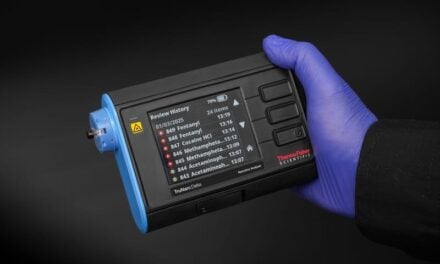Versantis, a clinical-stage biotechnology company developing novel therapies for orphan and pediatric liver diseases, today announced that the Swiss national innovation agency Innosuisse will co-fund a project to develop a prototype portable point-of-care (POC) device for blood ammonia monitoring.
“There is a great unmet medical need for an accurate and user-friendly device to monitor the levels of ammonia in patients with liver disease,” says Vincent Forster, PhD, MSc, CSO and co-founder of Versantis. “Hyperammonemia and its associated neurological manifestations, such as hepatic encephalopathy, affects 30-45% of cirrhotic patients and can lead to coma and death. We believe using a novel portable point-of-care device will allow daily monitoring of ammonia, thereby significantly reducing hospitalizations and fatal outcomes for patients, while also saving time, effort, and expense of health care professionals, supporting caregivers, and family members.”
Increased blood ammonia levels are a common sign of chronic and acute liver diseases and lead to hepatic encephalopathy (HE), a serious and potentially fatal complication. To date, ammonia monitoring is a time-consuming process involving health care professionals, laboratory equipment, and burdensome hospital logistics. Innosuisse will contribute approximately CHF475,000 to the project.
“This Innosuisse grant will allow us to advance our TS-01 technology to a fully-functional in-vitro diagnostic (IVD) POC device and partner with leading IVD manufacturers for planned marketing authorization and commercialization,” says Mark Fitzpatrick, CEO of Versantis. “The numbers of patients with cirrhosis continue to grow rapidly and a large proportion of them would benefit from better monitoring. This unique technology provides us with a significant market opportunity both as a standalone product and as a companion diagnostic to our lead therapeutic product candidates VS-01 and VS-02, potentially alleviating the growing healthcare burden associated with ACLF and HE.”
TS-01 is a unique point-of-care diagnostic device in prototype development for the at-home measurement of ammonia in blood, the primary cause of HE. The TS-01 assay exclusively licensed by Versantis is based on transmembrane pH-gradient polymersomes that encapsulate a pH-sensitive ratiometric fluorophore. By measuring this fluorescence signal, the ammonia concentration in the sample can be determined. TS-01 has been shown to be accurate across a wide physiological and pathological ammonia concentration range, and is negligibly impacted by endogenous interferences.
Versantis will enlist the ZHAW School of Engineering to develop a prototype POC device based on the polymersome-based ammonia quantification method TS-01, developed and validated by ETH Zürich and published recently in Nature Scientific Reports. The ZHAW School of Engineering will receive the grant funding to develop the optoelectronic component and engineer the biomedical instrumentation for the prototype device.
“We are eager to start this exciting project and bring our engineering expertise to design a state-of-the-art prototype and help transfer the technology to the patient bed side,” says Proffesor Mathias Bonmarin, head of the sensors and measuring systems lab at ZHAW School of Engineering.
For more information, visit www.versantis.com.





